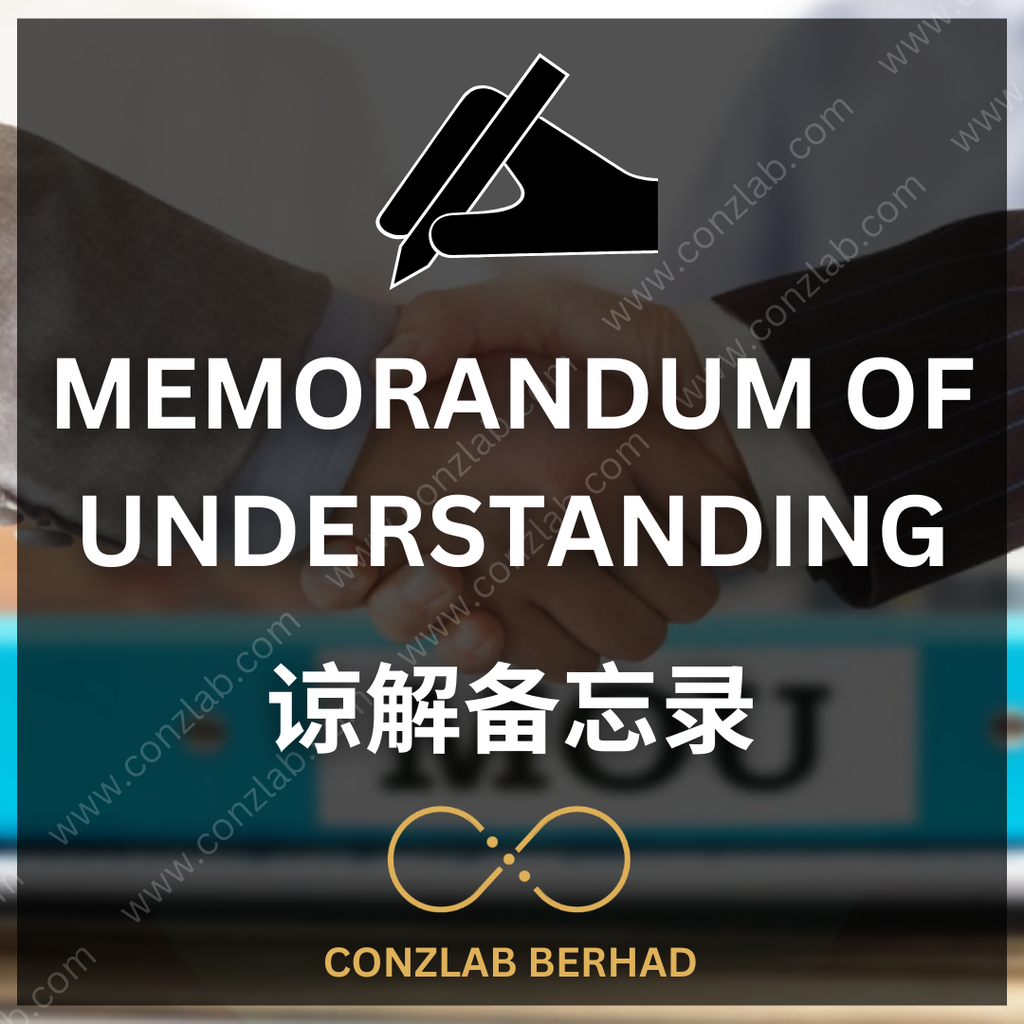Description
- A Memorandum of Understanding (MOU) is a formal document that outlines the preliminary terms and understanding between two or more parties. It serves as a non-binding agreement to establish mutual intentions and framework for future collaboration or partnership.
GOV Department
- (Depends on the nature of the agreement, e.g., Suruhanjaya Syarikat Malaysia (SSM) or Ministry of Domestic Trade and Consumer Affairs (KPDN).
License Name (Malay)
- Memorandum Persefahaman (MOU)
Details
- Defines the objectives and scope of the proposed collaboration between parties.
- Details roles, responsibilities, and contributions of each party.
- Includes provisions for confidentiality, timelines, and dispute resolution mechanisms.
- Serves as a basis for drafting a formal contract or agreement.
- Non-binding unless explicitly stated otherwise in the document.
Important Rules
- The MOU must clearly outline the mutual understanding and intentions of all parties.
- It must include clauses for confidentiality and exclusivity (if applicable).
- All parties must agree on the terms and sign the document to validate the understanding.
- The MOU should comply with applicable Malaysian laws, such as the Contracts Act 1950, if intended to be legally binding.
- If formalized into a binding contract later, the MOU must align with the final agreement.
Compound & Punishment
- Breach of a binding clause within an MOU (if any) may result in:
- Legal action for compensation or enforcement under applicable laws.
- Misrepresentation or failure to act in good faith may lead to:
- Disputes or dissolution of the proposed collaboration.
- Reputational damage and potential loss of business opportunities.
Advisor

Penny Lim , Legal Consulting
Ms. Penny is responsible for identifying possible legal issues and implementing solutions in the areas of government regulation, customer protection, and fair employment. Legal Counsel. Ms. Penny can advise on legal issues such as government and business permits, review legal documents before signing them, and complete legal research as needed by the company
Commonly Asked Questions
An MOU establishes a clear understanding between two or more parties before entering into a formal contract. It outlines objectives, collaboration scope, responsibilities, and expectations to avoid misunderstandings later.
Generally, an MOU is non-binding unless specific clauses such as confidentiality, exclusivity, or financial obligations are stated as binding. Whether it becomes enforceable depends on the wording and intent of the parties.
Yes. A lawyer ensures the document is clear, professionally structured, and aligned with Malaysian legal frameworks—especially if certain clauses are meant to be binding or lead to a structured agreement.
An MOU outlines preliminary intentions and frameworks for collaboration, while a contract is a legally enforceable agreement with defined obligations and penalties for non-compliance.
Yes. These clauses are common in MOUs, especially when sensitive information, intellectual property, or strategic collaboration is involved.
An MOU is commonly used in business partnerships, research collaborations, joint ventures, training programs, licensing discussions, vendor agreements, and international partnerships before a final contract is signed.
Authorized representatives from all participating parties must sign, ensuring the understanding is formally acknowledged and documented.
Yes — while generally non-binding, an MOU can be referenced as supporting evidence of agreed intentions, conduct, or misrepresentation during negotiations.
Validity depends on what is stated in the document. Most MOUs include a validity timeline, renewal terms, or automatic expiry upon signing a final agreement.
Yes. If both parties agree, amendments can be made through an addendum, modification agreement, or drafting a new MOU.

